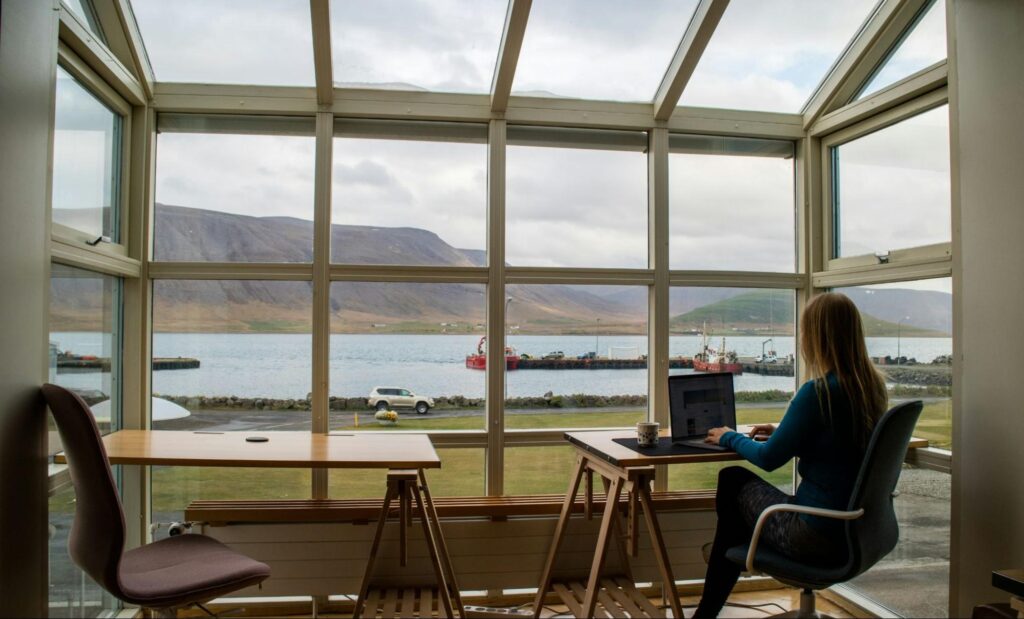The pandemic may have sparked the remote work revolution, but it’s tech startups that are truly writing the next chapter. More than just ditching office leases to cut costs, many early-stage companies are now building themselves entirely as remote-first operations, crafting their infrastructure around digital tools, asynchronous communication, and global talent.
And it’s working! Some of today’s most productive and culture-driven teams have never shared a physical workspace. Let’s dive into the revolution of the work from home phenomenon and how it has proven to bring many benefits to early but also established startups.
The Rise of the Remote-First Startup
What began as a necessity has now become a strategic choice. By avoiding the cost and logistics of physical offices, startups are funneling more resources into product development, growth, and team well-being. But this shift isn’t just about cutting overhead; it’s about redefining collaboration itself. Companies like GitLab (now valued at over $6B) and Doist have proven that distributed teams can build world-class software with high engagement and trust. Remote-first is not about isolation as it’s about intentionality. That means creating a digital environment where every process, from brainstorming to bug-fixing, is accessible and transparent.
And sometimes this phenomenom isn’t only exclusive to startups, but established companies like Crypto.com work on a 100% remote format in Europe.

A proof that the a mindset turned towards technological innovations can allow teams to establish a “work from home” mentality that serves to the benefit of all.
Tools Enabling the Shift
Remote-first startups rely on a stack of well-integrated tools that support both real-time and asynchronous workflows. Platforms like Notion, Slack, and Linear provide the backbone for documentation, communication, and project tracking. Zoom or Google Meet handle real-time discussions, while Loom allows teams to record walkthroughs and updates, reducing unnecessary meetings. For engineering teams, GitHub, Replit, and Codespaces allow for seamless code collaboration without needing to sync local environments. Finance and HR? Entirely cloud-based. Tools like Gusto, Deel, and Rippling help manage payroll, compliance, and employee onboarding. Forget about the fax machines or desk-bound HR reps. Startups have gone tech even way before the shift to being fully remote.
Perhaps most game-changing is the adoption of AI-powered productivity tools like writing assistants such as ChatGPT to develop copilots that boost code but also other daily tasks such as research or editing text. This isn’t just remote work, this is smart, tech-accelerated work that’s changing the pace of startup growth.
Lessons from an Unlikely Pioneer
While tech startups are optimizing for remote operations, another industry has been quietly innovating in parallel: online casinos. What many don’t realize is how advanced these platforms have become in terms of offering real-time and immersive experiences from a distance. Live casinos, for example, leverage 4K video cameras, multi-angle streaming, real-time interaction, and lightning-fast connections to bring the casino floor to players’ living rooms.

It’s not just about playing poker online as players can interact with real dealers in real-time, bet in sync with others, and feel the pulse of a live environment from anywhere in the world.
This evolution proves a key point: technology can faithfully replicate and even enhance experiences that once required a physical presence. As remote-first startups worry about culture, connection, and engagement, they might do well to take a cue from platforms like Vegas Slots Online, which showcase the world’s top online casinos. These platforms not only deliver games but also optimize for UX, accessibility, and trust, all remotely. Online casinos have proven that not even an established and traditionally brick and mortar business isn’t adaptable to the digital demands of our modern days.
Rewriting the Rulebook
Remote-first doesn’t mean “figure it out as you go.” The most successful startups are rethinking everything: from hiring processes that prioritize time zone overlap to company retreats that become key touchpoints for building relationships. They’re designing for digital-first work and leveraging the flexibility to tap into global talent pools that were inaccessible under the traditional office model.
Moreover, remote-first operations tend to build more inclusive, documentation-heavy cultures, which can be a superpower for scaling quickly without chaos.
Remote-first work is no longer an experiment, it’s a competitive advantage. For startups, it allows greater runway, faster hiring, and more diverse perspectives. Combined with the right tools, it’s a new default that trades walls for workflows and geography for global perspective. As industries like gaming, education, and even finance continue to digitize their core experiences, startups are leading the charge in proving that work, too, doesn’t need a fixed address, just a well-thought-out tech stack and a bold vision.



